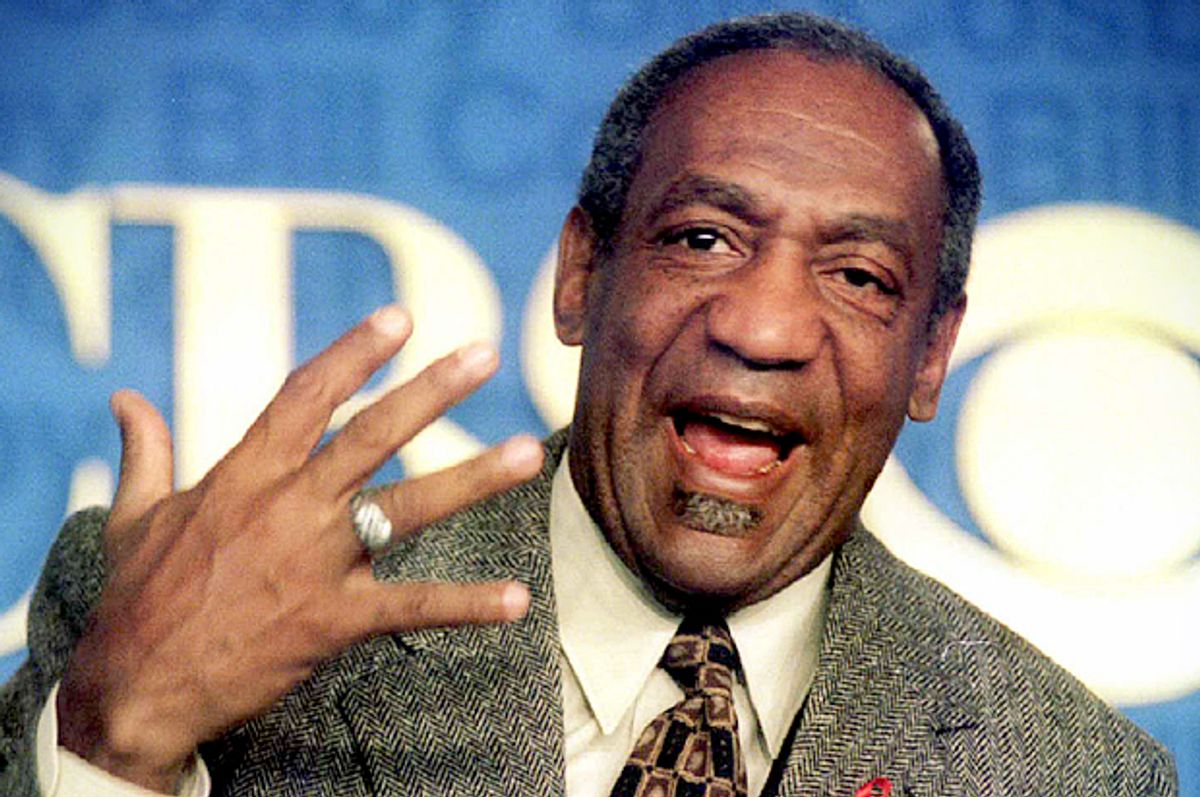The charging of Bill Cosby with alleged aggravated indecent assault against a former Temple University employee – months after dozens of women came out with accusations, more than a decade after dark rumors began to circulate – has been strange in a number of ways.
The story of Cosby’s alleged crime has been in the news so much – and things move so quickly in the age of social media and 24-hour coverage – that it seems a very long time coming. The case is also emotionally complicated for a lot of people: Cosby was not just another pampered, reckless celebrity, but someone who entered public consciousness as a racial pioneer. His grumpiness and patronizing bootstrap rhetoric over the years did not entirely destroy the residual warm feelings a lot of people held for him. For anyone who remembers “I Spy” or Fat Albert, Cosby’s downfall has been disorienting.
But what may be the strangest of all: Despite the usual call that a suspect of a crime should not be “tried in the media” or “convicted in the court of public opinion,” it was the media – especially social media — and public opinion that drove the case. It was a joke about rape by Hannibal Buress, captured on video, and an ensuing storm online that kept the story alive. Meanwhile, the judicial system groaned along, and statutes of limitations kept a number of cases from moving forward. Between the New York magazine cover, other print coverage, and steady outrage online, this has worked very differently than previous sexual assault cases.
In the old world – in the days before video clips that could go viral, online venting, the recent visibility of standup comedians – would Cosby have ever come to justice? Would he still be treated deferentially by reporters and, when challenged, give the kind of vague, evasive answers he’s so practiced at?
It’s hard to know for sure, but what’s certain is that for years, Cosby’s alleged crimes were an open secret among many in the press and media. So what took so long? “What took so long is that those in the know kept it mostly to themselves,” the late David Carr wrote in November, 2014, as the accusations picked up traction. “No one wanted to disturb the Natural Order of Things, which was that Mr. Cosby was beloved; that he was as generous and paternal as his public image; and that his approach to life and work represented a bracing corrective to the coarse, self-defeating urban black ethos.”
Journalists as respected as Ta-Nehisi Coates (in The Atlantic), Kelefa Sanneh (in The New Yorker), and Carr himself (in the on-flight magazine Hemispheres) mostly or entirely dodged the issue. Carr continued: “Those in the know included Mark Whitaker, who did not find room in his almost-500-page biography, ‘Cosby: His Life and Times,’ to address the accusations that Mr. Cosby had assaulted numerous women, at least four of whom had spoken on the record and by name in the past about what they say Mr. Cosby did to them.”
Salon’s Erin Keane wrote a similar piece a few days earlier than Carr.
All of this came well after years of gossip – which is hard to trust -- and a very solid 2006 Philadelphia magazine story, which was impossible to dismiss. That article, it turns out, was provoked in part by the woman whose case led to the new charges. But back in 2006, it was all sort of drifting. From Robert Huber’s piece, “Dr. Huxtable & Mr. Hyde”:
[Cosby’s] lawyers have gotten it pushed to the back burner, down to a simmer, and maybe it will amount to nothing, yet there is also the possibility that it will bubble up to destroy him. A young Canadian woman he met in Philadelphia through Temple University is accusing him of drugging her and then, when she was in a near-comatose state, molesting her. It went nowhere legally — the woman, Andrea Constand, waited a year before going to police, it boiled down to a he said/she said (Cosby claimed the sex was consensual, according to ABC News), and the police dropped the case for lack of evidence.
Things changed about a year ago. When Buress performed in Philadelphia in October of last year, he spoke for a lot of black men who were tired to being condescended to by Cosby, responded with "Yeah, but you rape women, Bill Cosby." The flood started there.
So where is this headed? Celebrities are typically hard to convict, but this whole process has shown that in some ways, we are in a new era.
Public opinion, of course, is not always fair. It can be overzealous; even its deepest convictions can be wrong. Comedians can be wrong as well. All of this goes double for social media. In some ways, we lost a lot when print was chipped away by websites and blogs, and the Philadelphia story is a reminder of how definitive a solidly reported print piece with long deadlines can be.
But the Cosby case shows that sometimes the new media can jumpstart a kind of justice after years of sitting in stall.


Shares